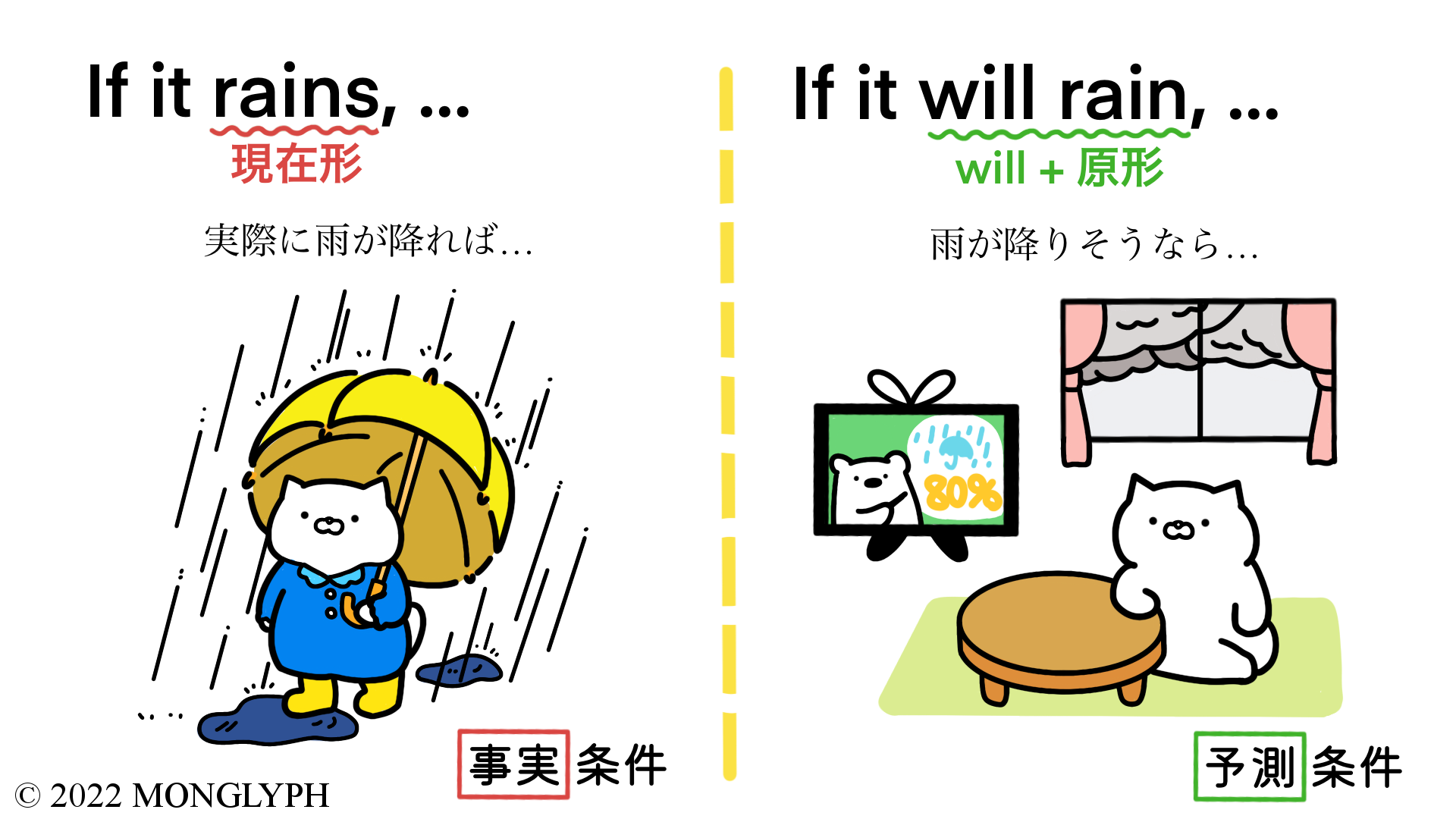You don't have to try so hard
米国国営放送 VOA がトランプ大統領の フェイクニュース (Fake News) を簡単に解説!
News Words: Fake
【スクリプト】
This is a news word President Donald Trump often uses to describe media reports.
We had hundreds of bidders; everybody wants to build our wall.
Some of the fake news said, "I don't think Donald Trump wants to build the wall."
Can you imagine if I said, "We're not going to build a wall?"
Fake news.
Something that is fake is not true.
It can also mean something that is meant to look real, but is not.
In sports, "to fake" is to move in a way meant to trick an opponent.
【訳例】
これはドナルド・トランプ大統領がマスコミ報道を表現するのによく使う言葉です。
何百という入札者がいる,みんな私たちの壁を作りたがっている。
いくつかのフェイクニュース(捏造報道)が「ドナルド・トランプは壁を作りたくないと思う。」と言った。
私が「我々は壁を作らない。」なんて言うと思いますか?
フェイクニュース(捏造報道)です。
フェイクなものは本当ではありません。
本物に見えるがそうでないものを意味することもできます。
スポーツでは,「フェイク」は相手を騙そうとする動きです。
【文法】
a way meant to trick an opponent
a way を過去分詞句の meant to trick an opponent が修飾しています。
早稲田国際教養学部 AO入試 2018年度 II. Europe is Bigger than Brexit
早稲田国際教養学部 AO入試 過去問題 2018年度
II. Europe is Bigger than Brexit
学部名に相応しく国際教養を問う問題である。英語力のみならず,ある程度の背景知識も備えていないと読み解くのは難しいだろう。
[第1段落]
It seems symbolic that Helmut Kohl, the man who oversaw the reunification of Germany, should die on the eve of negotiations leading to Britain's withdrawal from the European Union (EU). So long a giant on the European stage, Kohl made the best of the extraordinary circumstances and public mood that followed the collapse of communism.
題材は The Guardian の2017年6月18日の記事である。Helmut Kohlはこの2日前の6月16日に亡くなっている。
Helmut Kohlは1982~1998年にドイツの首相を務めた人物であるが,在任期間中の1990年10月にドイツの再統一 (the reunification of Germany) を実現させた。
イギリスは2016年に国民投票でEU離脱を選択し,2017年3月29日にEUから正式に離脱するための手続きを開始(EU条約第50条の発動),イギリスのEU離脱 (Brexit) の交渉がこれから始まろうという時期 (on the eve of negotiations) にHelmut Kohlが亡くなった。
「統一の方向」と「離脱の方向」を対比させ,それに連動するかのような Helmut Kohl の逝去を象徴的 (symbolic) としている。
should die という表現に違和感を覚えた人もいるかもしれない。これは主観的判断を述べる文の that 節の中で使われる should である。
It is symbolic that S should do ...
意味としては「死ぬ」ということで十分である。
もちろん「死ぬべき」という意味ではない。
ドイツの再統一は,ソビエト連邦を代表とする共産主義の崩壊 (the collapse of communism) の中での出来事であった。Helmut Kohlは当時の異常な環境 (the extraordinary circumstances) と社会のムード (public mood) を利用した。
センター本試験 英語 2017年度 第5問 解説 猫になっちゃった!
この記事の日本語訳は大まかな意訳です。英文構造や時制を反映したものになっていません。内容理解の参考程度にしてください。
【本文内容理解】
〔第1段落〕
Ahhhhhhhhhhh!
あーーーーー!
〔第2段落〕
With a big yawn I woke up.
俺はおおきなあくびをして起きた。
What a fresh morning!
さわやかな朝!
I felt very sharp, much sharper than usual.
研ぎ澄まされた感じだ,普段よりずっと。
I was able to hear the singing of birds more clearly than ever before.
鳥の歌声が以前よりはっきりと聞こえる。
I noticed the smell of coffee coming up from downstairs.
階下からコーヒーの匂いがする。
I stretched out my arms in front of myself and raised my back; it felt so good.
体の前で腕を伸ばして背中を上げる,気持ちいい。
I sat up straight, licked my hand, and started to clean my face with it....
座りなおして,手を舐めて,顔をきれいに・・・
Huh? ... Something was strange.
は?・・・何かおかしい。
Why was I licking my hand with my tongue?
どうして手を舐めてる?
Why was my body covered with fur?
なぜ体中に毛が生えてるの?
I tried to say something, but the sound that came out of my mouth was ... "Meow."
何か言おうとしたが,口から出てきたのは「ニャーン」だった。
〔第3段落〕
It was certainly my bedroom that I was in.
確かに俺の寝室だ。
It was certainly my bed that I was sitting on.
確かに俺のベッドの上だ。
Everything was as usual except that ... I seemed to have changed in to a different creature.
全部いつも通り・・・俺が別の生物に変わってしまったことを除いて。
I was so surprised that I couldn't move.
驚きすぎて動けない。
I couldn't do anything.
何もできない。
I wondered - would I have to spend the rest of my life as an animal?
俺は残りの人生を動物として生きなければならないのか?
I began to feel afraid.... But after a few moments those feelings passed.
恐い・・・でもすぐにその気持ちは消えた。
So, with a wave of my tail, I started to explore my surroundings.
俺は尻尾を振って周りを調べていた。
A cat's mind is said to be changeable like that.
猫の気分は変わりやすいって言うもんね。
〔第4段落〕
As I went down the stairs, the smell of coffee grew stronger and I could tell what was for breakfast.
階段を降りていくと,コーヒーの匂いが強くなってきて,俺は朝食が何かわかった。
Maybe the senses of a cat are sharper than those of a human.
猫の感覚は人間よりも鋭いのかもしれない。
When I got to the dining room, what I saw almost stopped my heart.
ダイニングで心臓が止まりそうになった。
It was me! The human I was sitting at the dining table! I couldn't take my eyes off myself.
俺だ!人間の俺がテーブルに座ってる。俺は俺から目が離せなかった。
(注意:イタリック体の I, my, me, myself は人間のYujiを指している。)
〔第5段落〕
The human I was absorbed in a smartphone, maybe writing responses to friends' messages or playing an online game.
人間の俺はスマホに夢中だ。友達にメッセージを返しているのか,それともオンラインゲームをしているのか。
Bending my head down toward the phone, I was sitting with rounded shoulders and a curved back.
スマホに頭を向けて,肩と背中を丸めている。
I looked very uncomfortable.
ひどく落ち着かない感じに見えた。
〔第6段落〕
I sometimes took a little bite of toast, but it appeared that I was not noticing any taste in my mouth.
俺は時々パンを少しかじっていたが,味わっていないようだった。
Actually, the taste of toast in my memory was vague.
実際,記憶の中のパンの味もあいまいだ。
I couldn't remember what else had been served for breakfast recently, either.
最近,他にどんな朝食が出されたか覚えてもいない。
The human I was just mindlessly putting in my mouth anything that was on the plate while handling the phone.
人間の俺は携帯をいじりながら,ただぼんやりと皿の上の何かを口に入れている。
I was so focused on the test messages or games that I took little interest in what was happening around me.
メッセージとゲームに気をとられて,周りで起きていることに興味がない。
In fact, my face had no expression on it at all.
事実,俺の顔は無表情そのものだった。
〔第7段落〕
"Yuji, you never study these days. Are you ready for your final exams? You're making me a little bit worried," said Mom.
「ユージ,最近全然勉強してないじゃない。期末試験の準備はできたの?少し心配よ。」と母が言った。
〔第8段落〕
"Mmm," said I. A sign of frustration briefly appeared on my face, but it disappeared in an instant.
「んー」と俺が答える。一瞬,不満が顔に現れたが,すぐに消えた。
My face was again as expressionless as it had been before.
俺の顔はまた無表情に戻っていた。
〔第9段落〕
"I don't like this guy," I thought. But this guy was me. I couldn't deny it. For the first time, I realized how I really looked to other people.
「嫌なやつだな。」と思った。でもこいつは俺だ。それは否定できない。初めて,俺は自分が他人にどう見えているのかわかった。
〔第10段落〕
Then, as I started to leave the table, our eyes met. "Wow! Mom, look! There's a cat in the dining room!"
俺がテーブルを立とうとしたとき,目が合った。「ああ!お母さん,見て!猫がいるよ!」
〔第11段落〕
I didn't know why, but I was running. I felt I had to escape.
なぜか俺は走った。逃げなきゃと思ったんだ。
Running up the stairs, I found the window in my room was open.
階段を駆け上がると,部屋の窓が開いてるのが分かった。
I jumped. I had a strange feeling.
跳んだ。変な感じだ。
The world suddenly seemed to have shifted.
世界が突然変化したようだ。
I felt my body falling down and ....
俺の体は落ちていって・・・
〔第12段落〕
Bump!
ドスン!
〔第13段落〕
I was awake, lying on the floor of my room.
目覚めると,部屋の床に寝ていた。
I slowly sat up and looked around.
ゆっくりと起き上がって,辺りを見る。
Everything looked like it usually did.
すべていつも通りだった。
I looked at my hands.
手を確認した。
I was relieved to see they were no longer covered with fur.
もう毛に覆われていない。よかった。
I stood up and, with a yawn, extended my arms above my head to stretch my back.
立ち上がって,あくびをしながら手を頭の上にやり背中を伸ばした。
Without thinking, as was my usual habit in the morning, I started to walk to my desk where my smartphone had completed charging and ... I stopped.
いつもの癖で,無意識に俺は充電が完了したスマホのある机に向かって歩き始めたけど・・・やっぱり止めた。
〔第14段落〕
After pausing for a moment, I turned around and went downstairs for breakfast.
少し間をおいて振り返り,朝食を食べに階下へ向かった。
【解説】
面白い出だしですね。カフカの変身のような。
更に,猫になっただけではなく,人間のYujiも存在している。
猫になったYujiが人間のYujiを客観的に見ているのですが,混乱せずに読めましたか?
問1 When Yuji realized that he had turned into a cat, he first felt ( ).
(1) astonished
(2) embarrassed
(3) excited
(4) satisfied
猫になった Yuji が最初どう感じたか。
第3段落に,
I was so surprised that I couldn't move.
とあるので,surprised の類義語 astonished を選べば正解です。
問2 When Yuji's mother spoke to him, he was annoyed because ( ).
1. he wanted to please her
2. her words disturbed him
3. his mouth was full of food
4. she interrupted his studies
第8段落に,
A sign of frustration ... とあります。
frustration は何かしたいことを妨げられた時の嫌な感情ですから,2. her words disturbed him(彼女の言葉が彼を邪魔した)が正解です。
(参考:Macmillan Dictionaryより)
frustration: an annoyed or impatient feeling that you get when you are prevented from doing what you want
(何かしたいことを妨げられた時の嫌な感情)
問3 The cat thought, "I don't like this guy," because Yuji ( ).
1. could not recall the taste of food he had eaten at breakfast.
2. tried to hide his efforts to study for the final exams
3. was making fun of his mother's concern for his future
4. was not showing respect for people or things around him
猫はなぜ「嫌なやつだ」と思ったのでしょうか。
第5~8段落の文脈から判断する問題です。
第5段落:スマホに夢中:absorbed in a smartphone
第6段落:パンの味がわからない:mindlessly
第7段落:お母さんの呼びかけ
第8段落:お母さんの呼びかけをほぼ無視:expressionless
スマホに夢中でお母さんやパンの味 (people or things around him) に無関心 (mindlessly, expressionless) であることが読み取れます。
respect(敬意)という言葉は直接でてきませんが,お母さんの呼びかけに適切に答えていないことから敬意が欠けているのがわかります。
従って,正解は 4. was not showing respect for people or things around him です。
問4 At the end of the story, Yuji did not pick up his smartphone because he ( ).
1. decided it was time to improve his attitude
2. realized that it was not yet fully charged
3. wanted to stick to his old priorities
4. was afraid of being scolded by his mother
物語の最後で Yuji がスマホを手に取らなかったのはなぜでしょうか。
第9段落の "I don't like this guy." より,自分のことが嫌になったのがわかります。
スマホに夢中で周りに関心がないことが原因です。
そのスマホを手に取らないということは,スマホに夢中になるのをやめて周りに関心をもとうという意思の表れですね。
従って,正解は 1. decided it was time to improve his attitude です。
自分の態度を改める時だと決めたのが理由です。
問5 What is the theme of this story?
1. Cats have much better than humans.
2. Observing yourself can lead to self-change.
3. People using smartphones look strange.
4. Unbelievable things can happen in dreams.
物語のテーマは何でしょうか。テーマですから,物語の全体から推測します。
主人公は猫になることで自分を客観的に見ることが可能となり,自分の嫌な部分に気づきます。そして嫌な自分を変えることを決意します。
よって,物語のテーマは「客観視」と「自己変化」です。
従って,正解は 2. Observing yourself can lead to self-change. です。
質問などがあればお気軽にどうぞ。
天気に関する表現
◇ 天気を表す形容詞
sunny, rainy, windy, cloudy, snowy, foggy
◇ It is の後に続ければ文が作れます。
It is sunny.
It is rainy.
It is windy.
It is cloudy.
It is snowy.
It is foggy.
◇ It is a ~ day. という文も可能です。
It is a sunny day.
It is a rainy day.
It is a windy day.
It is a cloudy day.
It is a snowy day.
It is a foggy day.
◇ 場所・時は文末に加えます。
It is sunny in Tokyo today.
It is a sunny day in Tokyo today.
◇ 雨が降る(動詞を使った表現)
It rains.
It is raining.
◇ 雪が降る(動詞を使った表現)
It snows.
It is snowing.
◇ 注意
以下のようには言いいません。(参考: Basic Vocabulary 2nd P74)
It is winding / clouding / fogging / sunning.
それぞれに動詞としての使用法がないということではありません。
仮定法「~がなければ」の表現
If it were not for water, nothing could live. (関西大 <改>)
もし水がなければ,何も生きることはできない。
以下は全て「Aがなければ」を表す表現です。
(1) if it were not for A = were it not for A (仮定法過去)
(2) if it had not been for A = had it not been for A (仮定法過去完了)
(3) but for A
(4) without A
with A は「Aがあれば」を表し,ちょうど逆の表現になります。
(5) without A ⇔ with A
With a little more care, you wouldn't make such a silly mistake. (ロイヤル英文法)
もう少し注意していれば,
Without appropriate software, a computer would be a mere box. (ロイヤル英文法)
適切なソフトがなければ,
条件を表す if 節の中に will は使えるのか?【文法】
一般的に条件を表す if が導く副詞節では未来のことでも現在形を使うと言われますが,will も使うことができます。
現在形を使った場合,事実(実際)の条件を表します。
will を使った場合,予測の条件を表します。予測以外に「意思」や「丁寧」を表す場合もあります。
(1) If it rains, I will not go out.(事実条件)
この場合 rains という現在形が使われているので,実際に雨が降れば外出しないということになります。
(2) If it will rain, I will not go out.(予測条件)
この場合 will rain が使われているので,雨が降ると予測される,つまり雨が降りそうなら外出しないということになります。
(下の画像をクリックすると,今回かわいい絵を描いてくれた MONGLYPH さんの作品販売ページに行けます!)
【関連参考書】
(1) 「続日本人の英語」マーク・ピーターセン著 124頁
If I am late, I will call you. (遅れてしまったら,電話する。)
If I will be late, I will call you. (遅れることになったら,電話する。)
(2) If it will rain tomorrow, we might as well cancel the match now.
Liliane Haegeman and Herman Wekker
The Syntax and Interpretation of Futurate Conditionals in English
Journal of Linguistics Vol. 20 (1984)
以下は if が導く名詞節及び副詞節の大学入試向けの図解及び解説です。
【解説】
大学入試の典型的な文法問題に以下がある。
(1) We'll stay at home if it ( ) tomorrow.(明日雨が降れば,家にいる。)
1. rains 2. will rain
主節は We'll = We will で未来時制であるし,tomorrow もあるので,未来時制の will rain がよいだろうと思って,2 を選択すると間違いとなる。
正解は現在形の 1. rains である。
if 以降の部分(これを節という)では,未来のことでも現在形を使うというルールがあるのだ。
しかし,「if の後は現在形だ!」と単純に考えると次のような問題が出て間違える。
(2) I don't know if he ( ) tomorrow.
1. comes 2. will come
「お,今度も if に続く動詞を問う問題だ。tomorrow があるけど,未来時制の will を使ってはいけないのだった。」
このように考えて,1. comes を選ぶと間違いである。
正解は 2. will come である。
さて,なぜ (1) は rains(現在形)で (2) は will come(未来形)なのだろうか?
実は,if には2つの使い方がある。
(1) We'll stay at home if it rains tomorrow.
(もし明日雨が降れば,私たちは家にいます。)
この if は副詞節で,「もし~ならば」という意味を表す。
(2) I don't know if he will come tomorrow.
(彼が明日来るかどうかわからない。)
この if 節は名詞節で,「~かどうか」という意味を表す。
つまり,副詞節の if では 未来のことに現在形を使うが,名詞節の if では普通に未来時制 will を使うということになる。
if 節が名詞節であるか副詞節であるかを判断するのは文全体の意味から総合的に判断するのが妥当であるが,以下のような動詞に続くときには,名詞節である場合が多い。
[know, wonder, be not sure, ask, doubt, see, tell] + if ...
≪まとめ≫
if が名詞節か副詞節かを見極めて,副詞節であれば will ではなく,現在形を使うということになる。
しかし,この話には続きがある。
(3) If you ( ) introduce me to Mr. White, I'll be much obliged.
1. shall 2. are 3. will 4. to
(横浜商大)
この問題の if は副詞節である。従って,will ではなくて現在形を使い,If you introduce me ... としたいが,どの選択肢を選んでもそうはならない。
正解は 3. will である。
この will は未来時制(単純未来)の will ではなく,意志を表す will なので if 節の中でも使用することができるというのが教科書的な説明である。
ここまでが受験の英文法で問われる内容である。以下は,if 節中の will についての更に詳しい説明である。発展的な内容なので受験生が知る必要はあまりない。
【発展】
本来,副詞節の if 節の中に現在形も will も両方使える。純粋な条件を表す場合には未来時制の代わりに現在形を使用する。学校や参考書では,副詞節の if 節の中では will を使わないと教えられることが多いのはこのためである。そのような説明は間違いではないし,シンプルだからわかりやすいのだが,実際には will を使用する場面がある。
では,どのような場合に will を使用するのだろうか。
大まかに言うと,if 節が「条件」を表すなら現在形を,「予測・意志・丁寧」を表す場合は will を使う。
≪まとめ≫
1. 条件 ⇒ 現在形
2. 予測,意志,丁寧 ⇒ will
これだけでは分からないので例文を見ていこう。
下記 (1) と (2) でどのような違いがあるだろうか?
(1) We'll stay at home if it rains tomorrow.
(もし明日雨が降れば,私たちは家にいます。)
(2) Take the whole of next week off, if that will help you to recover.
(もし回復に役立つなら,来週を全部休みにしてください。)
(1) は純粋な条件です。雨が降るか降らないかを条件として,もし明日雨が降ったら,家にいると言っています。
【if 節の雨が降る ⇒ 家にいる】という順番です。
(2) は予測です。来週を全部休みにした後,回復するのですから,回復するかどうかが来週を休みにする条件にはなっていません。
【休む ⇒ if 節の回復する】という順番です。
(2) の「予測」というのは未来時制 will の標準的な意味なので,結局は if 節の中でも普通に will は使用するということである。
次は「意志」の例文である。
(5) If you will smoke twenty a day, it's not surprising you have a hacking cough.
(もしあなたが1日に20本のタバコを吸うつもりなら,空咳が出ても驚きではない。)
「~するつもり」のように意志を表す場合も副詞節の if の中に will を使うことができます。教科書的にはこの用例が説明されることが多い。
(3) If you will introduce me to Mr. White, I'll be much obliged.
(ホワイトさんに紹介して頂ければ,大変ありがたいです。)
この横浜商大の例文の will は「意志」であると上述したが,「丁寧な依頼」と考えることもできる。
副詞節の if 節の中の will を「予測,意志,丁寧」の3つに区別して解説したが,この区別については BBC の Learning English (下記URL)を参考にした。なお同ページでは私が「予測」として紹介した区分は future results(未来の結果)として紹介されている。
http://www.bbc.co.uk/worldservice/learningenglish/grammar/learnit/learnitv315.shtml



